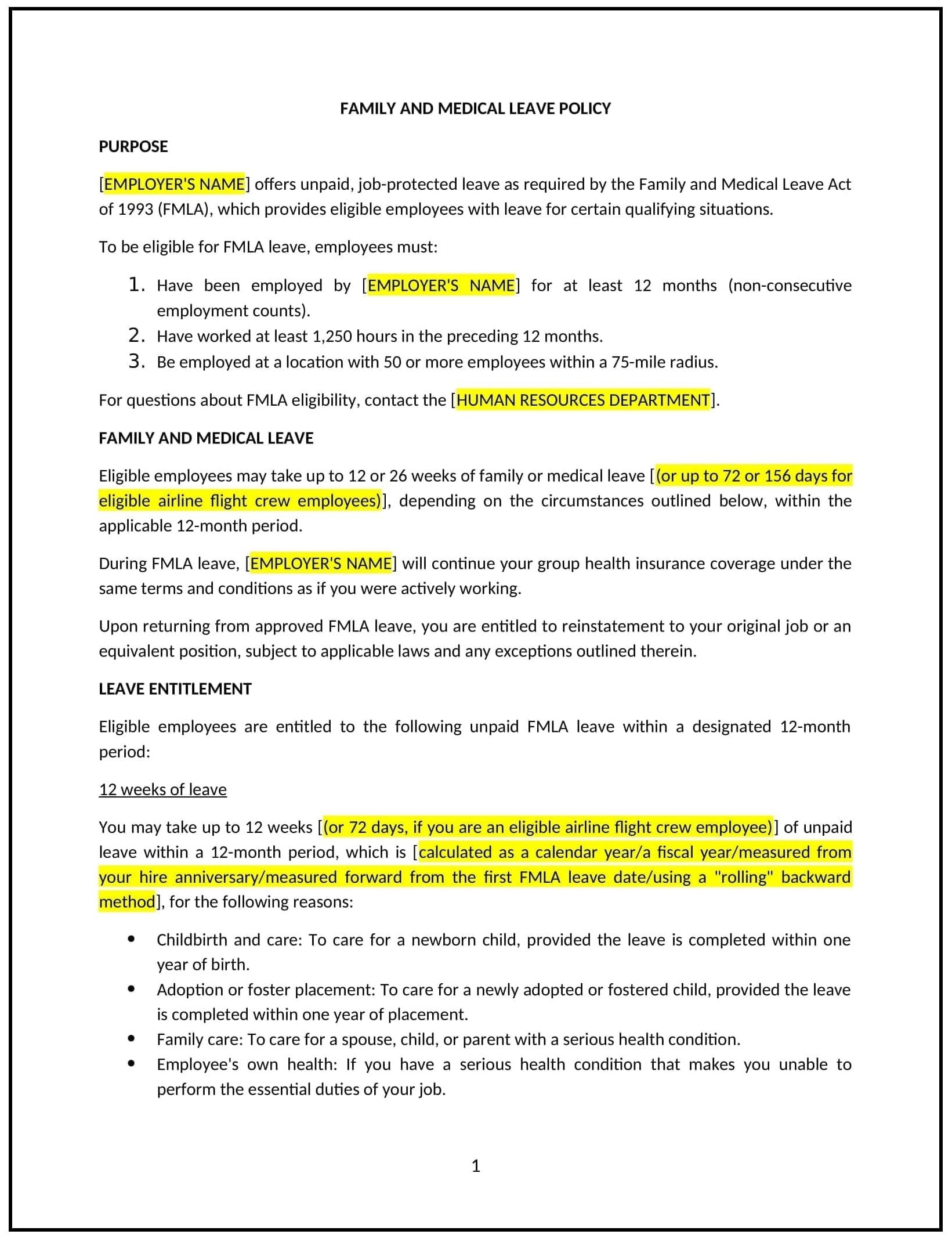Family and medical leave policy (New York): Free template
Got contracts to review? While you're here for policies, let Cobrief make contract review effortless—start your free review now.

Customize this template for free
Family and medical leave policy (New York)
This family and medical leave policy is designed to help New York businesses provide clear guidelines for employees requesting time off for family or medical reasons. Whether businesses are managing parental leave, medical emergencies, or caregiver responsibilities, this template supports compliance with New York Paid Family Leave (PFL) laws and the federal Family and Medical Leave Act (FMLA).
By using this template, businesses can support employees’ well-being, foster a family-friendly culture, and outline the processes for managing leave requests.
How to use this family and medical leave policy (New York)
- Define eligibility: Clearly state the criteria for employees to qualify for leave under New York PFL or FMLA, such as length of service and hours worked.
- Specify leave types: Outline the types of leave covered, including parental leave, medical leave for personal health conditions, or leave to care for a family member.
- Explain notice requirements: Provide details on how employees should request leave, including advance notice timelines and required documentation.
- Clarify compensation and benefits: Specify whether the leave is paid or unpaid, the interaction between PFL and FMLA, and how benefits like health insurance will be maintained during the leave.
- Include return-to-work guidelines: Detail the process for employees returning from leave, including any required medical clearance or reinstatement procedures.
Benefits of using a family and medical leave policy (New York)
This policy offers several benefits for New York businesses:
- Supports employee well-being: Providing clear leave options helps employees manage personal and family responsibilities without undue stress.
- Enhances compliance: Aligning with New York PFL and federal FMLA requirements reduces the risk of legal disputes or penalties.
- Improves employee retention: A supportive leave policy fosters loyalty and trust among employees, contributing to higher retention rates.
- Promotes workplace fairness: Establishing consistent guidelines ensures that all employees are treated equitably when requesting leave.
- Strengthens company culture: A family-friendly policy demonstrates a commitment to supporting employees’ personal and professional lives.
Tips for using this family and medical leave policy (New York)
- Communicate proactively: Include the policy in employee handbooks and review it during onboarding to ensure all employees understand their rights and responsibilities.
- Provide assistance with documentation: Offer resources or templates for employees to use when submitting leave requests, such as forms for medical certifications.
- Coordinate with payroll: Ensure payroll systems are set up to manage paid leave under New York PFL and unpaid leave under FMLA, as applicable.
- Monitor compliance: Regularly review the policy and practices to ensure alignment with state and federal leave regulations.
- Train supervisors: Equip managers with training on how to handle leave requests sensitively and in accordance with the policy.